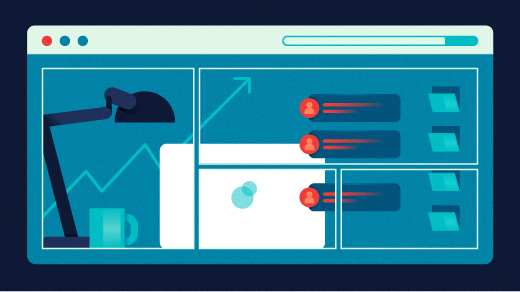Linux users say that choice is one of the platform's strengths. On the surface, this might sound self-aggrandizing (or self-deprecating, depending on your perspective). Other operating systems offer choice, too, but once you look at the options available for nearly anything you want to do on Linux, it doesn't take long to conclude that a new word ought to be invented for what we mean by "choice."
User choice isn't a "feature" of Linux; it's a way of life. Whether you're looking for a whole new desktop or just a new system tray, Linux hackers provide you options. You might also be able to hack some simple commands together to create a batch processor for yourself—and you might publish it online for others, thereby contributing to the array of choice.
With so many options available, it can be a real challenge to find the solutions you prefer. One of the most effective ways to discover cool new things in the Linux world is through personal recommendation. That's one of the many reasons Opensource.com covers what might seem like random applications—through sharing your experiences with software, others can discover new applications to love without the pain of rummaging through piles of choice.
Sharing and open source
Obviously, you can share software recommendations with friends, whether the software is open source or not. However, in the proprietary world, you can't share the software that you're recommending, and in the world of proprietary software as a service (SaaS), part of the act of sharing is the key component to a pyramid scheme for more user data. It's not quite the same as the no-strings-attached gift of open source.
Sharing is an integral part of free and open source software. It's one of the four freedoms defined by the Free Software Foundation, and it's the central concern of Creative Commons.
While it's easy to fall into the trap of viewing open source sharing as something that applies only to lines of sometimes cryptic-looking code, it goes well beyond that. Sharing is almost endemic to open culture, explicitly allowing and encouraging it on every level, from code, to tutorials and tips, to physical redistribution of a wealth of common goods and services. Part of that is the simple act of telling others about a cool technology that has improved the way we work and live.
Download the eBook
Opensource.com contributor and productivity aficionado Kevin Sonney has shared many of his favorite desktop applications in our latest eBook, 7 open source desktop tools. As is often the case in the open source world, he doesn't just share his knowledge about his favorite desktop tools, he explains how and why he chooses those tools to help you can evaluate them for yourself. Download it today!









2 Comments